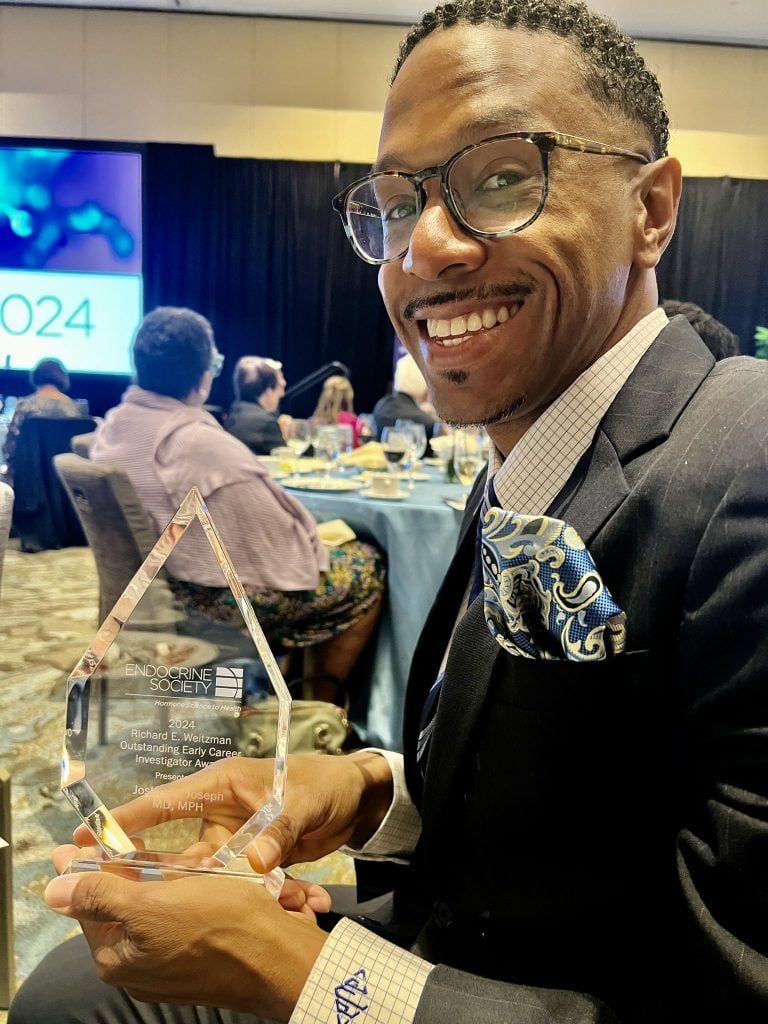
When his grandmother succumbed to a heart attack when he was only eight years old, Joshua J. Joseph, MD, MPH, was determined to end as much suffering as he could. The recipient of the Endocrine Society’s 2024 Richard E. Weitzman Outstanding Early Career Investigator Award, he details his ongoing endeavors to make sure Black Americans have equal access to healthcare and be more inspired to join the medical profession.
Early life experiences often have an indelible impact on choices we make later in life. For Joshua J. Joseph, MD, MPH, the pain of losing his grandmother to a heart attack after many years of living with diabetes spurred a deep curiosity about cardiometabolic disease and a determination to end the suffering it causes for so many others.
Joseph is an associate professor of Internal Medicine and Endowed Professor for Research in the Department of Internal Medicine at The Ohio State University College of Medicine. His career discoveries that have helped to advance the prevention and treatment of cardiometabolic disease were recently recognized by the Endocrine Society with the 2024 Richard E. Weitzman Outstanding Early Career Investigator Award.
“I was surprised and excited,” Joseph recalls when hearing the news of the Laureate award. “I know there are a number of outstanding early-career investigators in the Endocrine Society, so I was honored that individuals value the scientific impact of our work to advance cardiometabolic health and health equity. We focus on examining health disparities through epidemiology, followed by designing and implementing novel strategies to advance health equity through quality improvement, health system to community interventions, and community-based participatory research. Ultimately leading to evidenced-based programmatic implementation to reach people in their own communities.”
Joseph earned his medical degree from Boston University, and after completing an internship and residency at Yale University and a fellowship at Johns Hopkins University, he returned to the Columbus, Ohio, community where he grew up and joined the faculty at Ohio State in 2016. His research and community-based interventions have been dedicated to changing the health outcomes of marginalized communities in Columbus and throughout the United States.
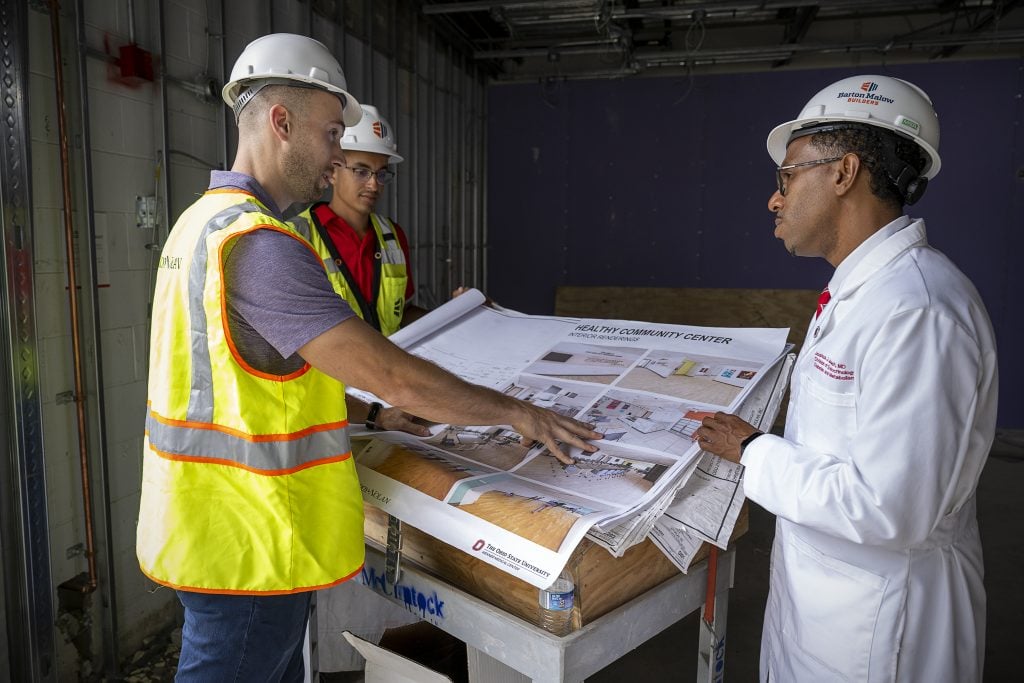
A Passion to Save Others
Joseph’s grandmother suffered from diabetes and high blood pressure, which eventually led to cardiovascular disease. He recalls watching her give herself the daily insulin injections and asking a lot of questions, like “what is diabetes?”
“I was at our house when she had her first heart attack and clutched her chest,” he remembers. “We called the emergency squad, and she went to the hospital and, fortunately, they were able to open up a vessel in her heart and she came home. But a few months later, she had another heart attack and never came home again.” Joseph was only eight years old.
“This was someone who I loved very much,” he continues. “She taught me my 123s and my ABCs, and to see the impact of diabetes and heart disease, I’ve just always wondered what more we can do so that other grandchildren don’t have to see their grandparents being burdened with cardiometabolic diseases.”
Joseph’s curiosity about diabetes led to his early research that helped unlock the critical role the renin-angiotensin-aldosterone system (RAAS) plays in the origin of type 2 diabetes. He found that lower aldosterone levels were associated with lower risk type 2 diabetes in Black people.
“I see patients from CEOs to people who are unhoused, and everyone in between. Everyone struggles with health literacy, so I think a major piece of advancing health equity is health education so that all individuals can be advocates for their own health, whether that be in a provider’s office or at a grocery store advocating for a better selection healthy fruits and vegetables.” — Joshua J. Joseph, MD, MPH, associate professor of Internal Medicine, Endowed Professor for Research, Department of Internal Medicine, The Ohio State University College of Medicine, Columbus, Ohio
In the U.S., Black adults are 60% more likely to be diagnosed type 2 diabetes than white adults, and this racial disparity has risen over the last 30 years, according to the American Heart Association (AHA). What’s more, the prevalence of high blood pressure in Black populations in the U.S. is among the highest in the world.
Joseph was the first to show that attaining ideal levels of AHA’s Life’s Simple 7 guidelines was associated with lower aldosterone levels and lower risk of diabetes and its complications including cardiovascular disease. Life’s Simple 7 involves adopting seven lifestyle habits: exercising regularly, eating a healthy diet, not smoking, avoiding excess weight, and keeping blood pressure, cholesterol, and blood sugar levels within a healthy range.
In collaboration with Darrell Gray, II, MD; Timiya Nolan, PhD; the National African American Male Wellness Agency; and multiple community partners, Joseph co-developed Black Impact 100, a six-month community-based research study built on the principles of Life’s Simple 7. The study launched in the summer of 2020 and recruited 100 Black men to work with health coaches and meet once a week for exercise and education, along with addressing social drivers of health with a community health worker. The goal was for the men to lose 7% of their body weight and achieve 150 minutes of physical activity a week, followed by a secondary goal of getting their blood pressure under control. Over 24 weeks, the improvements in Life’s Simple 7 scores equated to a 20% lower risk of cardiovascular disease. Additionally, the men developed strong bonds with one another, the researchers, and community partners.
“The improvements shown in the single-arm trial of Black Impact have led to funding from the American Heart Association for a 340-person randomized clinical trial,” explains Joseph. “The larger trial in addition to focusing on improvements in AHA Life’s Essential 8, which adds sleep to Life’s Simple 7, adds measures of psychosocial stress and interrogation of underlying biological mechanisms including changes in cortisol, inflammation, and the gut microbiome.”
He says that his community-based interventions have helped him understand that an important step providers need to take when recommending patients adopt lifestyle changes, such as Life’s Essential 8, is to first make sure they actually understand them.
“What is the appropriate blood pressure and a normal blood pressure being 120/80?” he says. “What do the systolic and diastolic blood pressures actually mean? This isn’t something that many people are getting in school now, and for those who did, it’s probably been many years ago.”
Joseph emphasizes that there is a critical need for easy-to-understand health information about these factors across socioeconomic statuses to increase health literacy.
“I see patients from CEOs to people who are unhoused, and everyone in between,” he says. “Everyone struggles with health literacy, so I think a major piece of advancing health equity is health education so that all individuals can be advocates for their own health, whether that be in a provider’s office or at a grocery store advocating for a better selection healthy fruits and vegetables.”
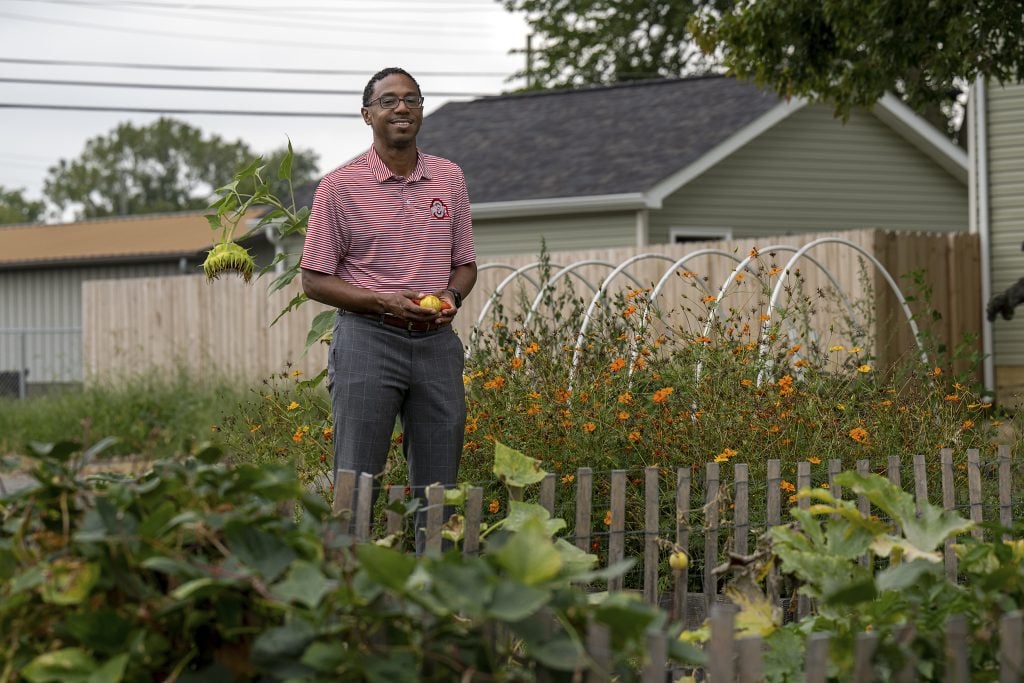
Diversifying the Messengers
Delivering health messaging and hoping patients follow the recommendations is a goal of all healthcare providers. Who is actually delivering the messaging, however, also often plays a significant role. Past studies have found that Black patients are more likely to follow medical recommendations after visiting Black doctors. Black men, especially, have been found more likely to bring up other health problems when assigned a Black doctor. A key to increasing these types of interactions is to diversify healthcare messengers.
Diversifying the number of healthcare providers in the country has been no easy task. Only 5.7% of physicians in the U.S. are Black, according to a 2022 Association of American Medical College’s report. And while medical colleges and associations have been trying to increase that number for decades, progress has been slow. In fact, a 2021 study by researchers at UCLA found that the proportion of Black physicians in the country has increased by only 4% over the past 120 years. And the share of Black male doctors has remained unchanged since 1940.
Joseph is involved in multiple efforts that he hopes will change these statistics. He was one of the first fellows of the Endocrine Society’s Future Leaders Advancing Research in Endocrinology (FLARE) program, and now serves as its co-leader. Beyond his work with FLARE, Joseph is also involved with multiple programs in Ohio that aim to increase the number of students from underprivileged and underserved communities pursuing careers in medicine.
“I am the faculty advisor for a program called HEADS-UP where we go into the community and provide health education to elementary, middle, and high school students,” Joseph explains. “We’re showing the students actual human hearts, we’re bringing brains, and we’re talking to these students about careers in healthcare.”
He’s also involved with Made for Medicine — a Columbus-based longitudinal program that offers Black students in grades 6-12 who have interest in the medical field opportunities for hands-on learning, simulations, and mentoring with Black physicians in several major specialties.
“Mentors are everything. I’ve been fortunate to have outstanding mentors throughout my career. We need mentors at every stage from the time someone has that spark of curiosity of what a career in medicine and science could be all the way through senior investigators.” — Joshua J. Joseph, MD, MPH, associate professor of Internal Medicine, Endowed Professor for Research, Department of Internal Medicine, The Ohio State University College of Medicine, Columbus, Ohio
Under his leadership as chair of the Endocrine Society Clinical Affairs Core Committee, Endocrinology Mentoring Day (eMD) was started at ENDO 2023, where trainees spend a day with a mentor at the annual conference. The goal of eMD is to get trainees excited about careers in the specialty to grow the pipeline of endocrinologists and learn more about opportunities within the Endocrine Society. eMD expanded to more than 75 trainees at ENDO 2024 in Boston last month.
Joseph knows all too well how important mentoring relationships are for young learners.
“Mentors are everything,” he says. “I’ve been fortunate to have outstanding mentors throughout my career. We need mentors at every stage from the time someone has that spark of curiosity of what a career in medicine and science could be all the way through senior investigators.”
He credits several mentors who have made a significant impact on his life — inside and outside of the lab — one of whom is Endocrine Society past-President Dale Abel, MD, PhD, chair and executive medical director of the Department of Medicine at David Geffen School of Medicine at UCLA.
“I first met Dr. Joseph when he was a participant in the FLARE Program in 2015,” Abel remembers. “It was very clear to me then that Joshua was a humble, yet focused individual, who was committed to developing an academic career that would impact the lives of individuals with diabetes and cardiovascular disease.”
“Joshua took all the feedback received from senior FLARE faculty to heart and with an attitude of continuous self-improvement, coupled with vision, creativity, and hard work. It has been incredibly gratifying to see his career take off like a rocket ship. Our relationship has continued over these years, and I now see Joshua as an academic partner and appreciate his co-leadership of our FLARE program, now in its 13th year.”
Sherita Hill Golden, MD, MHS, was Joseph’s mentor during his fellowship at Johns Hopkins School of Medicine, where she is a professor in the Division of Endocrinology, Diabetes and Metabolism. She echoes Abel’s sentiments.
“Dr. Joseph reminded me in many ways of a younger version of myself,” Golden says. “He was interested in using the tools of population science in endocrinology to identify novel targets for preventive interventions in diabetes. Our mutual passion around this scientific approach and his overall love of science nurtured our mentor/mentee relationship.”
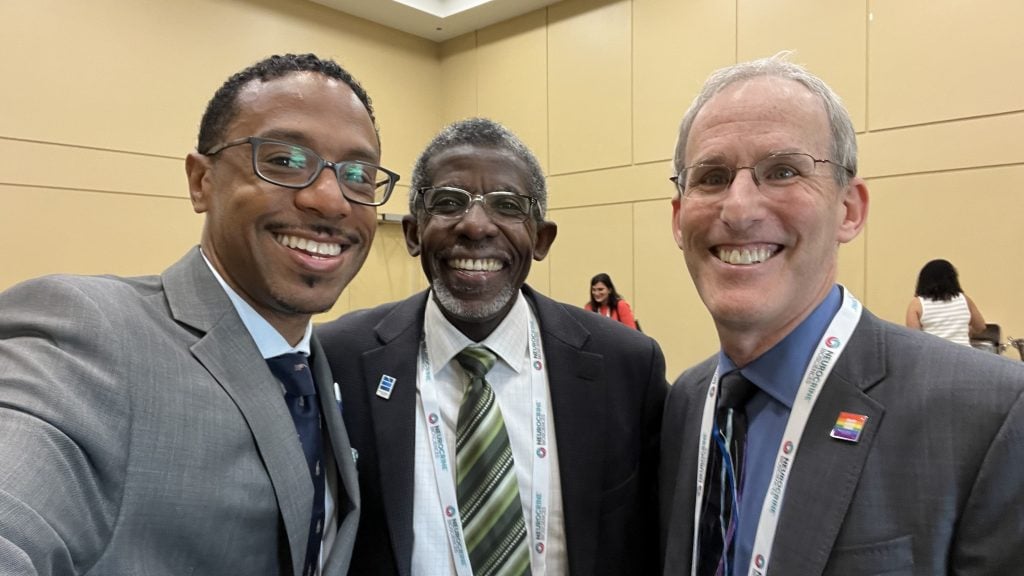
Developing Evidence
Joseph’s work in Columbus and the surrounding communities is multi-faceted and he and his team are currently engaging with Black men in the Black Impact project, as well as three other major studies currently underway:
- LINK: Focuses on linking education, access to fresh produce, and community referrals to improve diabetes care. Participants receive a combination of a food referral, diabetes and cooking education, and referrals to address other social needs. The study aims to deliver insight into what is the right “dose” of these interventions to improve blood sugar among individuals with type 2 diabetes and food insecurity and is funded by the National Institute of Diabetes and Digestive and Kidney Diseases (NIDDK).
- ACHIEVE: Medicaid-enrolled pregnant women with pregestational uncontrolled type 2 diabetes are provided a continuous glucose monitor and mobile health app with provider dashboards where they can log in their obstetrical needs as well as their social needs. The dashboard information sends information to a community health worker, an endocrinologist, an obstetrician-gynecologist, or a diabetes nurse. The main goals of this trial funded by the Agency for Healthcare Research and Quality, is to improve diabetes outcomes not only in the pregnant women but also perinatal outcomes for the baby.
- SUSTAIN: SUSTAIN (Promoting Sustained Behavior Change and Nutrition Security in Medicaid-Enrolled Individuals with Stage 2 Cardiovascular Kidney Metabolic Syndrome) partners with the grocery delivery service, Instacart, as well as the Ohio Food Collective, to provide access to Instacart for 16 weeks, and access to food through the Mid-Ohio Food Collective for another eight weeks. “The difference between the intervention and the control group is that the intervention group gets a community health worker and a behavioral nutritionist to address social drivers of health and catalyze lifestyle changes,” Joseph explains. The project is part of the AHA Healthcare by Food Initiative.
- FASTER: The Exercise is Medicine Program at The Ohio State University Wexner Medical Center offers individuals an 11-week physical activity program based on referral by a provider. FASTER examines the feasibility and acceptability of incorporating Fitbit smartwatches into the health system referral-based exercise is medicine program in older Individuals.
“Over the next three to five years our goal is completing these studies and building the evidence-base for novel programs that can be implemented in communities to advance health equity in populations near and far,” Joseph says.
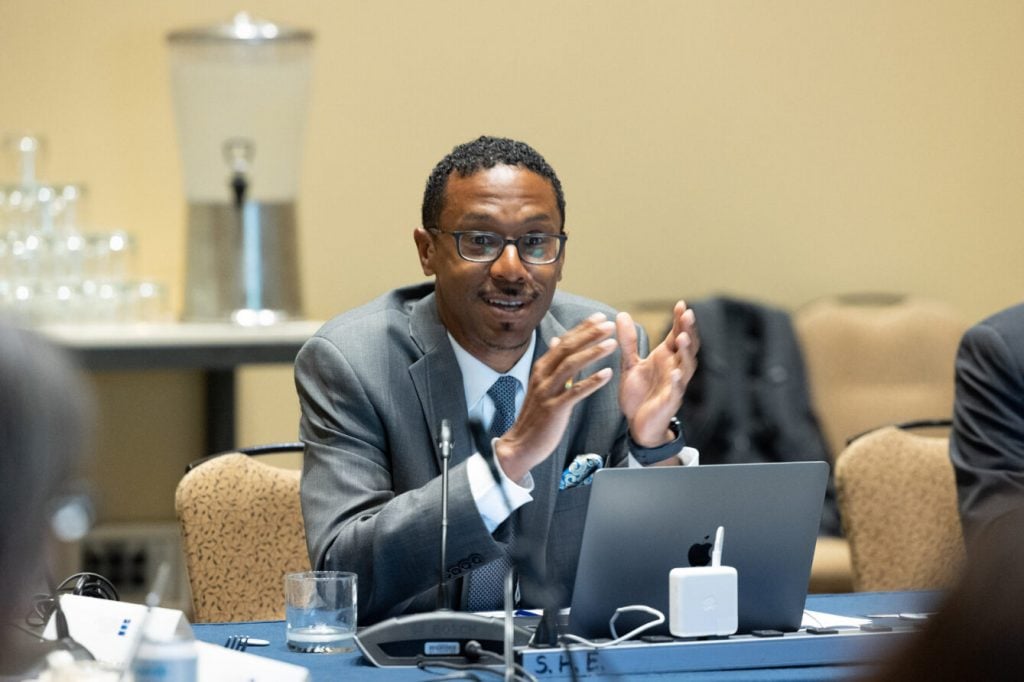
Joseph is already building out the next phase of programmatic implementation to advance health as the founder and medical director of the Healthy Community Center in partnership with director Javonte McDonald. The Healthy Community Center launched in Spring 2024 and has a state-of-the-art demonstration kitchen, a health retail café, community rooms, and an innovation space. The center provides programming to advance physical and mental wellbeing with a focus on nutrition, physical activity, gardening and entrepreneurship and classes are free.
“Through our multifaceted team-science approaches we strive to continue to make scientific advancements that will transform clinical care and population health, so that everyone has an opportunity to lead longer, healthier lives free of cardiometabolic disease.”
—Shaw is a Carmel, Ind.-based freelancer and regular contributor to Endocrine News. She writes the monthly Lab Notes column.

